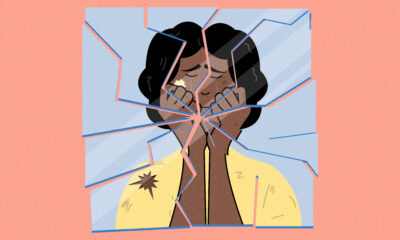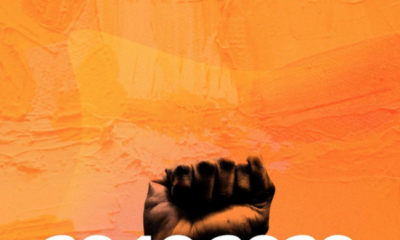Features
Low Pay Is No Excuse for Extortion and Bribery in the Nigeria Police

The two of us were squeezed into the front passenger seat of the car. There were four people sitting at the back and, until we got to Offa, the last person who joined us kept shifting uncomfortably and hissing under their breath. They were, like me, struggling for space. I usually prefer to pay extra fare whenever I travel so I can sit comfortably, but on these roads, drivers do what they want, not what passengers prefer. I sometimes wonder why they don’t just increase the transport fare slightly so the seats could be arranged better. But then, who would be willing to pay more? I was travelling to Isolo, a small town in Kwara State.
The road was rough, full of potholes that slowed us down. At intervals, we met police officers who casually stretched out their hands to receive money from the driver. At every checkpoint, he handed them some cash. The one time he didn’t, he explained that he had already settled them earlier that day. He does this every day, he said, and the least he gives is #100 per stop. I asked what would happen if he refused to pay.
“They’ll stop us and find one offence to pin on me. It’s better to give them small money than to waste hours at their station or even risk losing my car for a few days.”
“I don’t think what they’re doing is fair. They already get paid to do their jobs,” I said. The drivers have accepted it as part of their reality. It’s a cost factored into transport fares. There was a short silence before the last passenger to join us spoke up. “You can’t blame the police officers,” he said. I looked at him through the rearview mirror and saw that the others were also waiting for him to explain.
“The government pays them poorly. Most of them wear the same uniforms they collected years ago.”
It’s a common sentiment in Nigeria. People find justifications for all sorts of things—cheating, gambling, internet fraud, and sometimes even murder. The argument is always the same: the system is hard, so people must find a way to survive. But low pay should not be an excuse or justification for extortion, especially from police officers. They are tasked with upholding the law, not breaking it. When we excuse corruption because salaries are low, we ignore the fact that integrity is necessary for any functioning society. People can drive stolen cars on the road because they are certain they’d bribe their way through. Expired documents can be carried around because, well, “No be to just bribe the police?”
Yes, their salary is meagre. If the government valued the police force and expected them to truly uphold the values of the country, it would reflect in their salaries and working conditions. But at the same time, the justification for extortion weakens any real push for reform. If we accept that police officers can take bribes and extort drivers to survive, then there’s no pressure on the government to pay them better. The cycle continues.
It is this same logic we use to defend other unethical actions. People justify students cheating in exams because “education is hard,” justify employees stealing from their workplaces because “salaries are poor,” and justify internet fraud because “there are no jobs.” or celebrate internet fraudsters who scam foreigners, arguing that “they stole from us first.” It is the same justification people use for jungle justice—beating or even killing suspected criminals before they get a fair trial.
Each time we excuse these things, we normalise a culture where people do whatever they can get away with. And in the end, it affects everyone.
When bribery becomes routine, it breeds inefficiency. People no longer get what they deserve based on merit but on how well they can manipulate the system. The honest ones get punished for following the rules, while those who exploit loopholes get ahead. When corruption is everywhere, people stop believing in fairness, and the system collapses further.
No society can thrive when people justify crime just because it makes life easier for them. The truth is, bad governance has made life difficult for many Nigerians. But if we accept corruption as inevitable, then nothing changes. Instead of excusing these actions, we should be demanding better. Police officers should earn enough to live on. Workers should be paid fairly. The economy should provide jobs for young people. These are the real solutions.
As I sat in that cramped car, watching the driver repeatedly hand out money, I wondered how much it all added up to in a day, a week, a year. I thought about how much easier things would be if police officers didn’t see bribery as part of their earnings. But as long as people continue justifying it, the cycle will continue, and nothing will change.
***
Feature Image by Samson Audu for Pexels






















